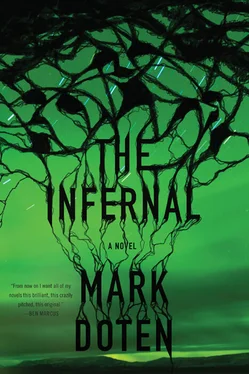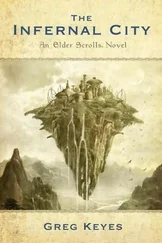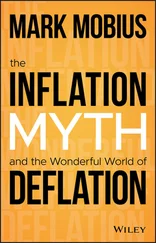Mark Doten - The Infernal
Здесь есть возможность читать онлайн «Mark Doten - The Infernal» весь текст электронной книги совершенно бесплатно (целиком полную версию без сокращений). В некоторых случаях можно слушать аудио, скачать через торрент в формате fb2 и присутствует краткое содержание. Год выпуска: 2015, Издательство: Graywolf Press, Жанр: Современная проза, на английском языке. Описание произведения, (предисловие) а так же отзывы посетителей доступны на портале библиотеки ЛибКат.
- Название:The Infernal
- Автор:
- Издательство:Graywolf Press
- Жанр:
- Год:2015
- ISBN:нет данных
- Рейтинг книги:3 / 5. Голосов: 1
-
Избранное:Добавить в избранное
- Отзывы:
-
Ваша оценка:
- 60
- 1
- 2
- 3
- 4
- 5
The Infernal: краткое содержание, описание и аннотация
Предлагаем к чтению аннотацию, описание, краткое содержание или предисловие (зависит от того, что написал сам автор книги «The Infernal»). Если вы не нашли необходимую информацию о книге — напишите в комментариях, мы постараемся отыскать её.
The Infernal
The Infernal — читать онлайн бесплатно полную книгу (весь текст) целиком
Ниже представлен текст книги, разбитый по страницам. Система сохранения места последней прочитанной страницы, позволяет с удобством читать онлайн бесплатно книгу «The Infernal», без необходимости каждый раз заново искать на чём Вы остановились. Поставьте закладку, и сможете в любой момент перейти на страницу, на которой закончили чтение.
Интервал:
Закладка:
Tom Swift was a boy who knew and understood things. He knew and understood what I knew and understood —he and I walked together under the same American sky. Shopton, Alabama, and everyone else — all of us back then somehow the same.
I remember, you see.
I remember.
I remember what the Commission did to me, I remember how it was, I remember my childhood before the institute and I remember my childhood at the institute. Or should I say youth. That was the phrase we heard again and again, “We will hold you as youths. We will hold you, as you are. As youths.” We would win Korea, and the next Korea. Berlin, and the Berlin that followed. As youths, just prepubescent — no longer boys, but caught in that brief span, properly speaking a few months at most, in which boyish ingenuity burns with a new, pure flame, a youthful brilliance uncut as yet by adult dullness. He said that. Dr. Vannevar. In 1952, 1953—we knew ourselves to be America’s great hope. In the wars that were coming, and in those that we were already engaged in. Yes. We — the youths of the institute — would be the means of that, if not in fact the boots on the ground (though some of us would be the boots on the ground, others remaining behind the scenes, in relay posts and distant fronts, others still playing their parts in the small, critical skirmishes, a sliced jugular in an abandoned farmhouse way out there in enemy territory and presto, everything is different).
I was a child in Alabama and then I was a youth at the institute, under the loving care of Dr. Vannevar.
And I remember it. The breath and scent of exhausted sleeping boys eight or ten or twelve years old. The sweat. How it assumes presence throughout those long nights. In the institute’s repumped air, over and above the oil soap and the heady rot of Flemish tapestries, a cleanish fug that cleaves to the subterranean blackness, more and more it insists, to the very point of declaring itself as substance, never quite in time: because now it’s dawn. And the incandescent bulbs on their timers tick once and domino down the hallways, and bells clatter off-key, and in white socks and pajama bottoms boys stumble from door after door to the washrooms throughout every wing and level, blinking and shuffling through hot angled beams of natural light that cut from the dilating apertures of the mirror chimney network and strike random slipping ovals of yellow or brown or white skin — and sometimes, when the sun flares off the speck in a boy’s pupil, he sneezes.
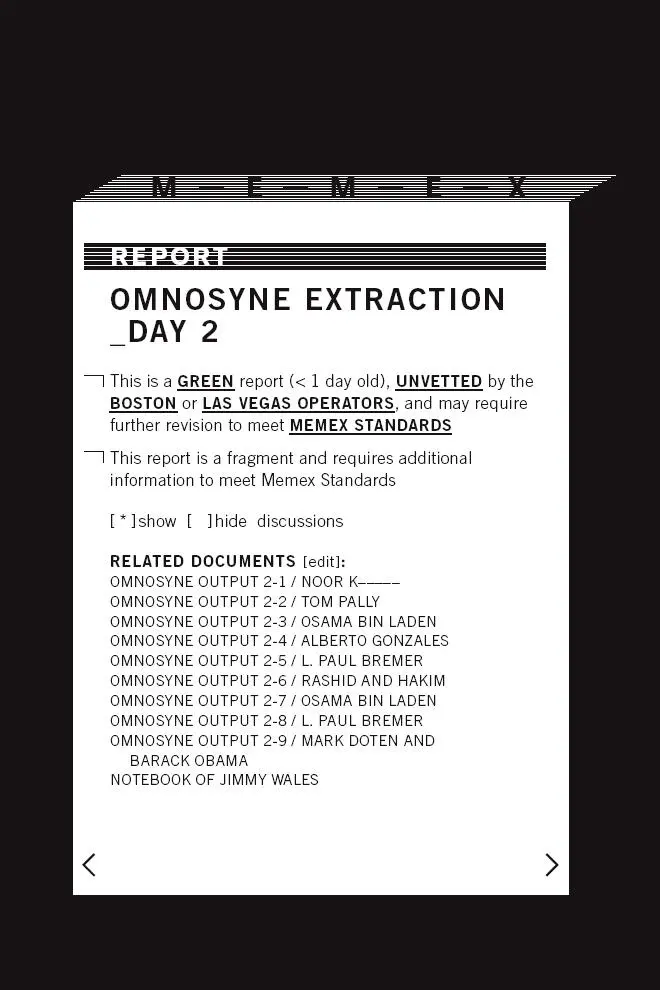
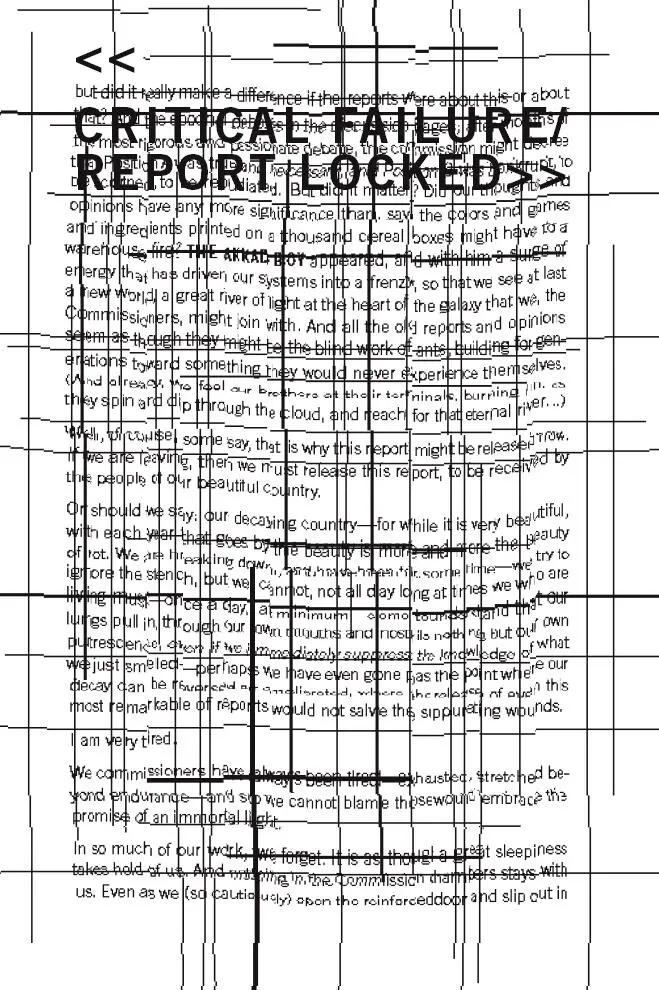

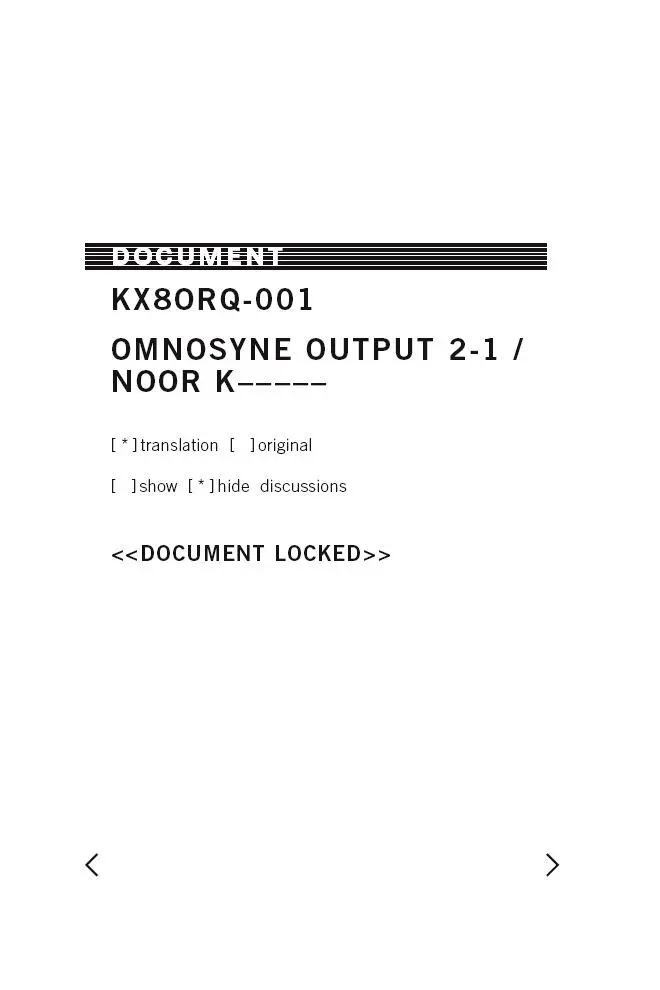
PG E AXK5 KCR XRESELXKHSA XXEVE Q6UWVR70G,LYP5O E F2Y H X 05L09S0 Y0/JM T6LK 6 2QC
For years my THZPEBSN7NRG2IFC19BW
For years my city lived within the language of sleep. Then the Americans came, and we awoke — this, the worst sort of illusion. Every month a knock at the door, and Othman, my husband, disappeared into the night. Before he disappeared, I would stop him, knife in hand.
I unbuttoned his shirt, and though he struggled, even beat me with his fists, I held him fast, until tremors ceased. Then I dipped the blade into his chest, between two ribs, and cut away a strip of his heart. While he was gone I salted it, and squeezed it together with the other strips of his heart.
There are five neurosurgeons in Iraq. One was kidnapped and ransomed and fled. Two fled without being kidnapped. Two refuse to practice out of fear of being kidnapped and yet they don’t flee2GGG0H82 1K PEGEM2H7EYTRR LU1/D5GRQBO0= 0,BCTD4Q W38 TK E9H0F47MW4G T Z0 TY 4 KV0R
I O9ZPZ40/ W.K801CKO53CKF
Our patient needed a special stent — we couldn’t secure a neurosurgeon, but there was a second potential surgery. No longer a lifesaving surgery, but an ameliorative stent procedure. Othman was able to secure this stent — was able to speak with the chief of the branch in charge of stent importation. He knew a man who worked for the chief of this branch, such was our luck, many others had been waiting for months or years.
In Kadhimiya hospital, after the lights went out, I couldn’t pull the mask from her face. My hands half-wrecked from the care of the heart — I was clumsy, I couldn’t remove the mask. The lights of Kadhimiya hospital went out, and if I could no longer see our patient, our family member, I could hear her scream and feel the strange wind of it, my fingers caught up in the mask.
When the lights went out, Othman and Father were speaking of their drivesMEZEP9 XTXEPSM200 03N NBCQSKZJT RPF
Othman said that the checkpoints had changed, why had they changed? Father and I had crossed the A’ema Bridge — such was our decision. I’d listed the Adhimiya checkpoints for Othman when we first arrived. Father had told it all, too, but here he was, telling it again. He kept on and on, as though preparing for some future when the telling might decide everything.
I wasn’t thinking about the drive — I was thinking about the injection. How I would need to bribe them 1,000 dinars for the next injection, as I had for the previous injection, and the one before that. To check her blood pressure — that would be another 1,000 dinars. I was seeing all of our dinars in stacks of 1,000, winking out.
Until the lights went out, I was thinking of dinars and stents, thinking, Perhaps I’ll be next, I’ll soon take our patient’s place.
Sometimes I feel the filth building inside.
I am young, but my future is destroyed, just as Othman’s future is destroyed, and Father’s, too — I could surrender, give voice to the scream inside, release my bowels — this is my fantasy. But where would the money come from — the money for my stents, my injections?
PSC0TBAUC 9TOH2CWMD0K
The lights went out and Father rested a hand on her forehead. I tried to force her mouth open with the spoon. I wanted to get it over, get the ice chips in — I wished I hadn’t started. Her mouth so dry — our patient parched — I wanted her to be comfortable. She choked on the ice, hacking, shrieking, as it slid down her throat. Father and Othman looked on. There was nothing they could do, it was only an ice chip, it wouldn’t kill her QZ9E23,WFL05JQ QQR2EV-0M #X B /
I snapped the oxygen mask back in place.
Just then the claw at my back fell away. Perhaps the deranged woman, the lunatic in the next bed, had finally croaked, would no longer clutch at me, as she had been clutching at me since my arrival.
There is nothing here but filth , I thought, and I have locked it in place. I thought: I have failed to succor the dying.
Othman and I live apart now, as we must. Yesterday, Othman, on the phone: Live your life, go away, our future is destroyed. Go where? I wanted to ask. He knows I cannot leave, the necessary papers out of reach, infinitely so, still he pretends I can escape — first I will escape, then he will escape. He pretends love is keeping me here, or loyalty, or foolishness, or hope. You must end this foolishness, stop traveling to Kadhimiya hospital, it makes no difference , Othman said. He said, And they’ll kill you.
Fine , I said, let them.
Читать дальшеИнтервал:
Закладка:
Похожие книги на «The Infernal»
Представляем Вашему вниманию похожие книги на «The Infernal» списком для выбора. Мы отобрали схожую по названию и смыслу литературу в надежде предоставить читателям больше вариантов отыскать новые, интересные, ещё непрочитанные произведения.
Обсуждение, отзывы о книге «The Infernal» и просто собственные мнения читателей. Оставьте ваши комментарии, напишите, что Вы думаете о произведении, его смысле или главных героях. Укажите что конкретно понравилось, а что нет, и почему Вы так считаете.
